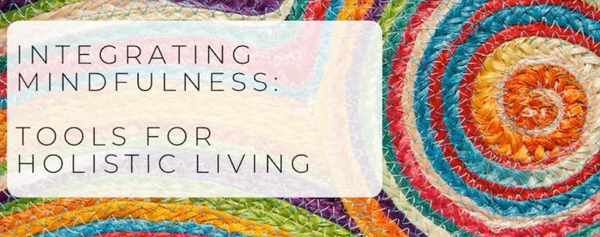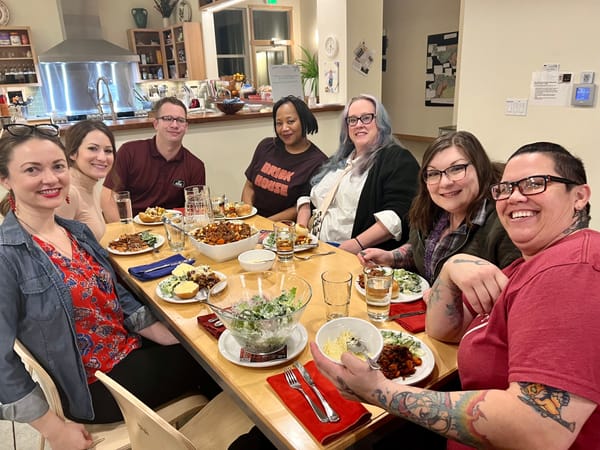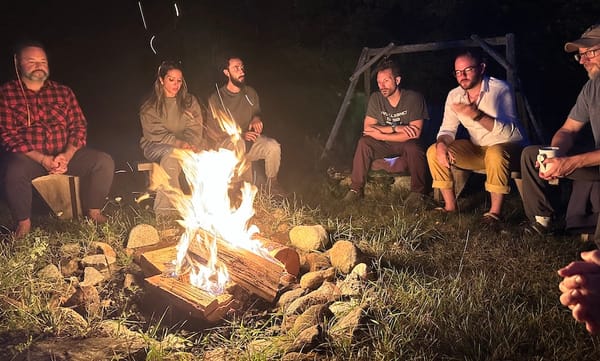Monastic Academy: Take One
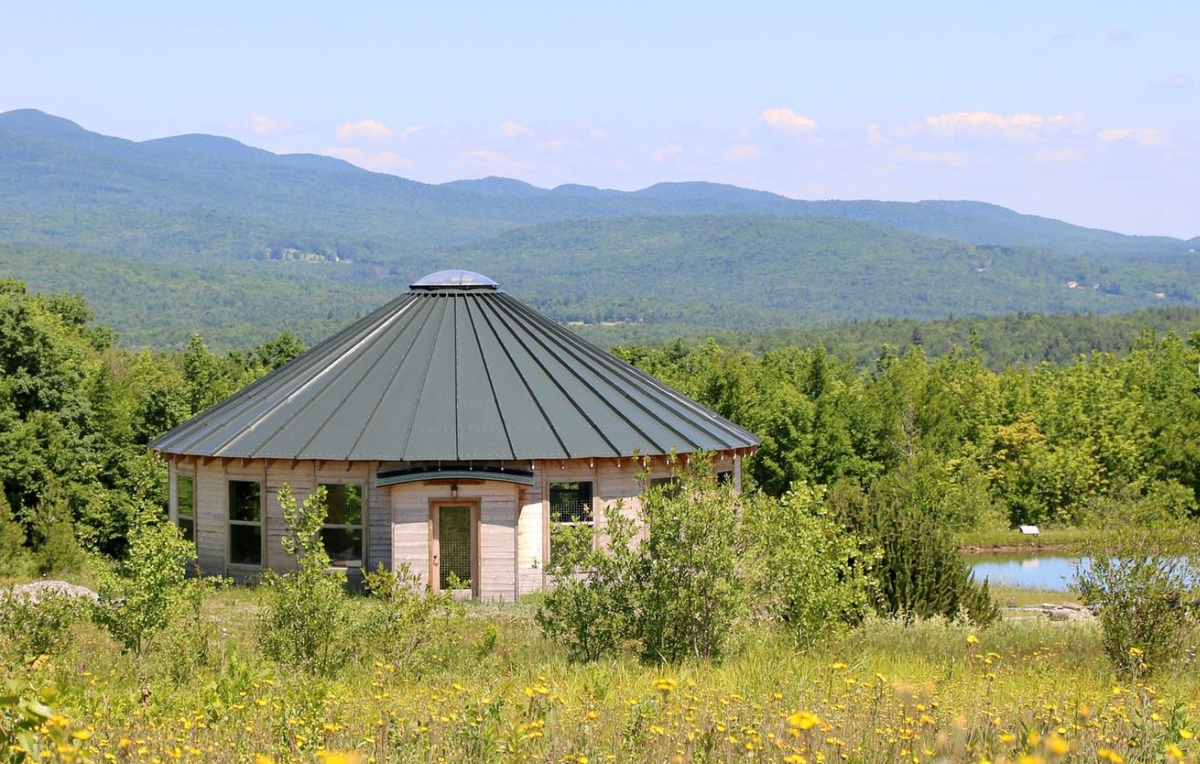
When I realized that all three of the philosophers I'd been crushing on for months had met up for a symposium at this place called MAPLE (the Monastic Academy for the Preservation of Life on Earth), I knew I had to go. It was 2023 and I was on a mission to connect with people who shared my concern about humanity's current inability to respond to the existential risks we are facing in any widespread, coherent or effective manner. After years of professional organizing, I'd realized my work in the NPIC (Nonprofit Industrial Complex) was not able to create the ultimate systemic impact I wanted it to have, and I was in need of a spiritual redirect for how to meaningfully move forward. So, we (my husband and I) made arrangements and flew out site unseen.
Preamble on the Path
It's important to share that before arriving at the Monastic Academy, my path first wound through my husband's home sangha, the Jewel Heart Center in Ann Arbor Michigan, and Newport, Washington's own best kept secret: Sravasti Abbey. Without previously participating in retreats at both of these Tibetan Buddhist organizations, I do not believe I would have had the mindset, manners, stamina or humility to have such a positive experience in rural Vermont.
The first time I participated in a weekend retreat at the Garrison Institute in Upstate New York, I felt so nauseous that I had to leave the meditation hall and go panic journal in my room for a few hours to calm down. For whatever reason, the practice made it impossible to continue to ignore the painful legacy of college traumas that were roiling beneath the surface of my consciousness at that time. This is not an entirely uncommon experience for westerners thrown into the deep end of a traditional meditation retreat who have never meditated in earnest before. Know that if your first experience with a meditation program is anything like this it is entirely normal, and it is actually an incredibly liberating experience if you can recoup yourself and eventually try again.
When people have a low-key shock reaction to places like the Monastic Academy, I have compassion for them because I've personally been there. If it weren't for my husband and my geographic proximity to the largest monastery for Tibetan Buddhist nuns in the west, I very likely could have run away pointing fingers or sucking my thumb as well. Retreats at Sravasti Abbey over the years were less jarring than my first time at Jewel Heart, but were no less grueling. Thankfully, I was forced to confront some early school-based trauma and authority issues, look at the absurd nature of my overly self-centered mind, and take responsibility for putting my body exactly where it was supposed to be at any minute throughout the strict daily program.
Any Buddhist practice regime worth its salt will contain many of these strenuous aspects, so if you are new you need to accept that they are a feature, not a flaw. I am forever indebted to my early Buddhist friends for beginning to re-orient me to a calmer and more sustainable way of being in the world. This "vocabulary of conduct" has opened up innumerable developmental doors for me, and has empowered me to slowly step through them over time.
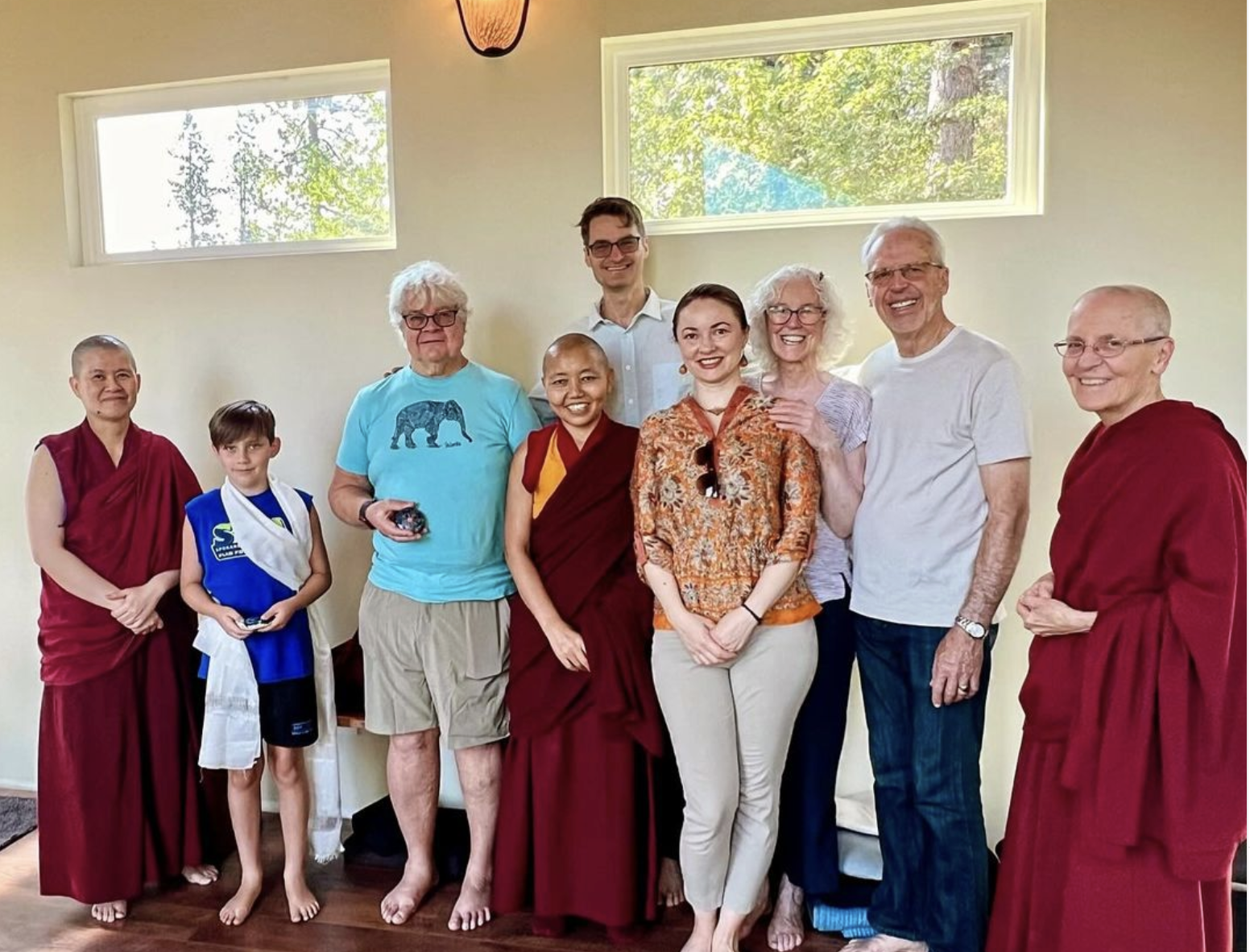
The First Few Days at MAPLE
The first few days at this modern Zen-influenced "training monastery" were all about learning how to follow the rules, get into the schedule, and realizing that being constantly informed about how to more correctly do things is just an inevitable part of the experience. Resentment, blaming, and self-hatred are not of benefit here. You realize that people are trying to help you, and the best thing for you to do is to listen and be humble about it. It can feel like suddenly being in a different country, where all the customs are different and right is left and up is down. When in a Buddhist "container," simply do your best and do as the Teacher and the senior students do!
Meditation happens at the crack of dawn and again at dusk to align your body with the natural rhythms of sunrise and sunset, and to clear your mind before your day and before going to sleep. There is a reason for everything: The dress code, how dishes are cleaned by hand after meals at the table, the periods of "noble silence." You may not know what the reason is upfront, but reflection on why these different behaviors seem to have such a powerful effect on your psyche often reveal the underlying logic.
One example is how the culture of general restraint serves as a contrast to heighten the "meaning and power" of Monastic Academy's blow-your -socks-off daily ecstatic chanting routine. The first time I sat in the Zendo, a finely built yurt worthy of temple status, surrounded by the polyphonic sound of 14 monklettes chanting I was transfixed by a sea of otherworldly sound. I could scarcely understand what was being said through all the sonic layers, but they were generating a group coherence that re-combined to form its own distinctly supra-human voice. The "egregore" of the Monastic Academy sangha was speaking to me directly.
Beginners Luck
I was so taken with the sincerity that this boisterous community of talented young folks brought to their practice that I got swept up in the momentum of the group's rhythms. "This is insane," I thought to myself, "but I'm definitely into it!" My goal was simply to make it through the service week, which was to be capstoned by an "Awakening Day" on the weekend; a full day of meditation. For a newbie like myself I really didn't know if I could handle it. Would I have to run out of the room in front of everyone like at Garrison? With a busy, branching ADHD mind and a body that had spent way too many thousands of hours at my desk building an organization through a global pandemic over the past few years, I was not in the best physical or mental shape and I was intimidated by the endurance I thought it would take to survive such a meditative marathon.
I suppose I was nervous enough that I "found the fear of God" and entered "into the zone." I meditated like my life depended on it because I did not want to sit in that Zendo for hours on end in a state of desperate discomfort. I employed every tip and trick I'd picked up throughout the years and the previous week, and before I knew it, "Ding!" went the bell and we were already halfway through the day!
I doubled down again after the lunch period and was able to have a curious mental experience that let me know I was actually getting somewhere with "the practice." I had noticed how posture and stillness were essential to effectively training the mind on the "focus space," which is an open area of awareness where one places their attention without engaging in any specific thoughts. I was clued in enough to this state that somewhere off to my side I could feel a thought bubbling up from my subconscious, aiming to interrupt my hard won concentration. I was actually enjoying my state of meditative equipoise enough that without consciously thinking "Not today, Satan!" I used the strength of my concentration to repel the intrusion of the thought. I could actually feel myself mentally push away the thought before it fully became one.
Wow! I didn't know my mind was capable of this kind of willful autonomy. I had never had such a clear and palpable experience of self-exerted "mind control" before. My entire life I have felt at the mercy of my intense, passionate and unrelenting creative intellect. Being in my mind can sometimes feel like being in a sports car with no gear shifter, or galloping around bareback on a wild stallion, so proving to myself that I could not think a thought if I tried hard enough was quite a revelation. I made it through the day at the end of the week on a high note. After finally making initial contact with the control panel of my own mind, I knew that someday I would definitely be back for more.

